Android 11 Shows Sizable Performance Decline On Pixel Devices In Early Benchmarks
But what we weren’t expecting with the release of Android 11, however, is what appears to be a notable regression in performance compared to Android 10. This realization isn’t something that we sought out through shear curiosity, rather it was an observation made during our standard smartphone testing regimen for upcoming reviews of new Google Pixel and OnePlus devices. Once we noticed the performance discrepancy, we decided to test our suspicions with a couple of bone-stock Google Pixel smartphones that we have on hand: last year’s flagship Pixel 4 XL and the slightly newer Pixel 4a. We also have numbers from the new Pixel 5 and Pixel 4a 5G forthcoming, though those devices are still under review NDA.
We ran a number of benchmarks on both smartphones with Android 10 installed; then we wiped each machine to their factory defaults and started over again with Android 11 installed. In both cases, each phone had all of the latest OS, security and app updates installed as of today (10/12/2020). Below are the benchmark results that we were able to obtain.
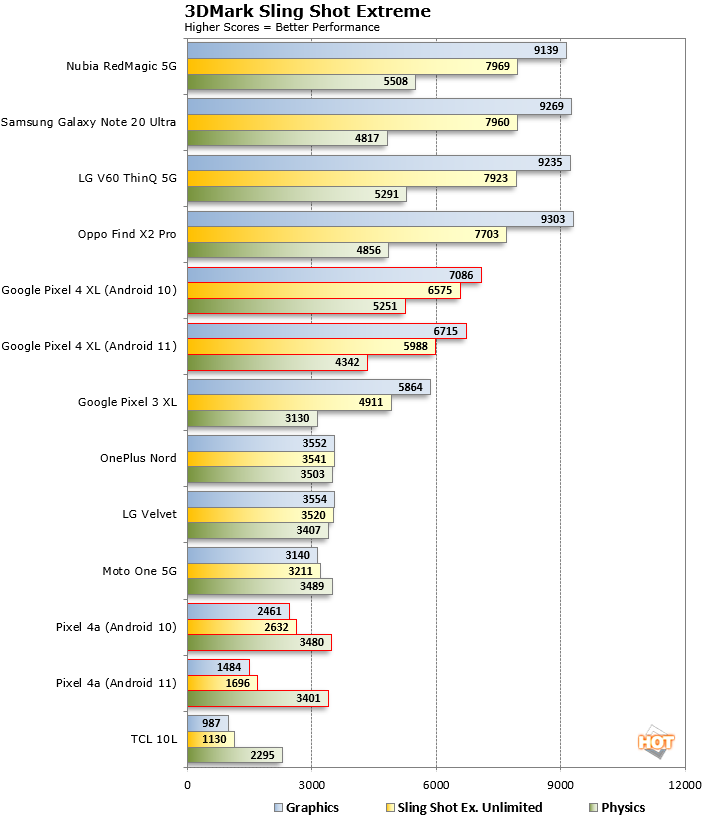
In the 3DMark Sling Shot Extreme test for the Pixel 4 XL with Android 11, we see roughly a 9 percent bleed-off in performance in the overall benchmark (compared to Android 10), which is comprised of 5 percent and 18 percent drops respectively in the graphics and physics components. Things fared even worse for the Pixel 4a, which saw its overall score tumble by a whopping 33 percent. Also, notice the significant drop-offs in the Pixel 4 XL Physics performance scores, as well as the Pixel 4a graphics performance degradation.
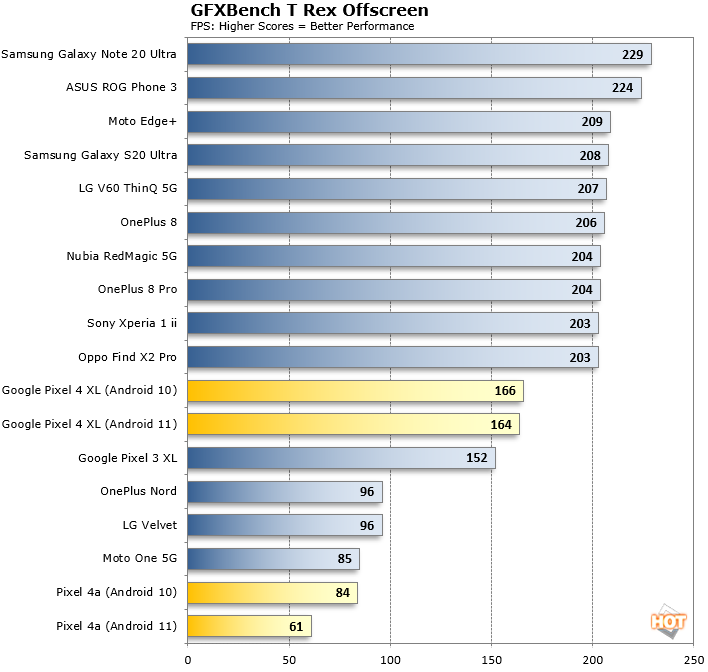
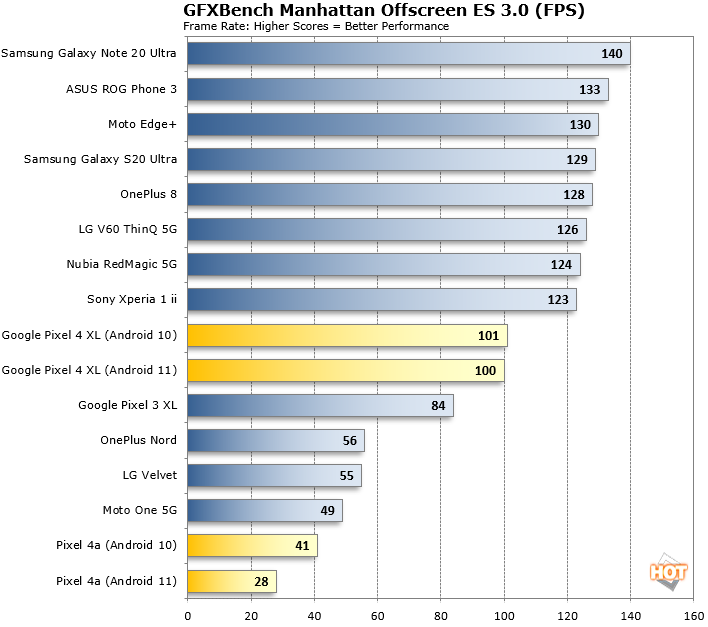
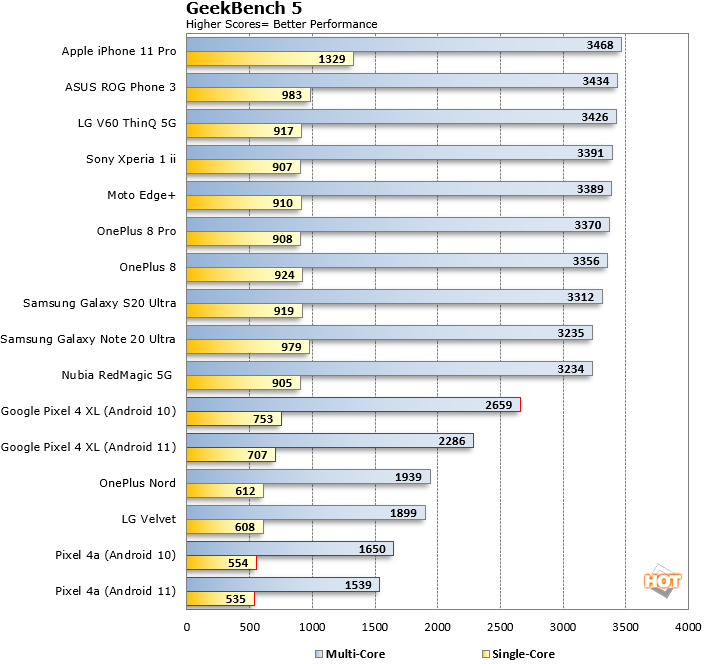
Circling back on pure CPU throughput, we moved on to Geekbench 5, to observe the difference in performance between Android 10 and Android 11, and again we saw a drop-off. The Pixel 4a exhibited a small 3 and 7 percent decline in single-core and multi-core performance, respectively. However, the Pixel 4 XL saw a 14 percent drop in the multi-core score and 6% decline in single thread performance.
Finally, we wanted to see what this might translate to in more real-world type workloads, so we turned to PCMark Work 2.0 for Android to cross-check general productivity tasks, video rendering, web browsing and the like. Here's what we found...
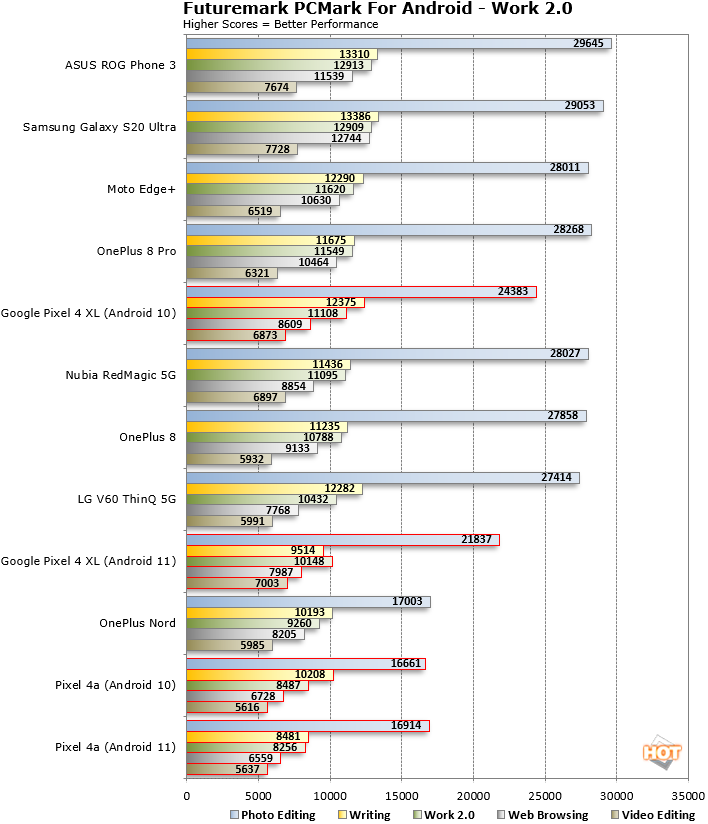
Again, we're seeing some noticeable setbacks in performance for the Pixel 4 XL on Android 11. There was a 10 percent decline in the overall score and most other benchmark components (including a 7% drop in Web Browsing), however, we noticed a 24 percent shortfall for the Writing sub-test. Moving to the Pixel 4a, it actually saw a slight increase in Photo Editing under Android 11 and negligible differences for the overall Work 2 score.
In the end, we’re not quite sure what we’re witnessing here, or what’s causing the performance shortfalls when moving from Android 10 to Android 11. However, we were able to replicate these results after factory resets and multiple benchmark runs. We've reached out to both Google and Qualcomm for their take on our analysis and will update this piece if we receive official responses.


